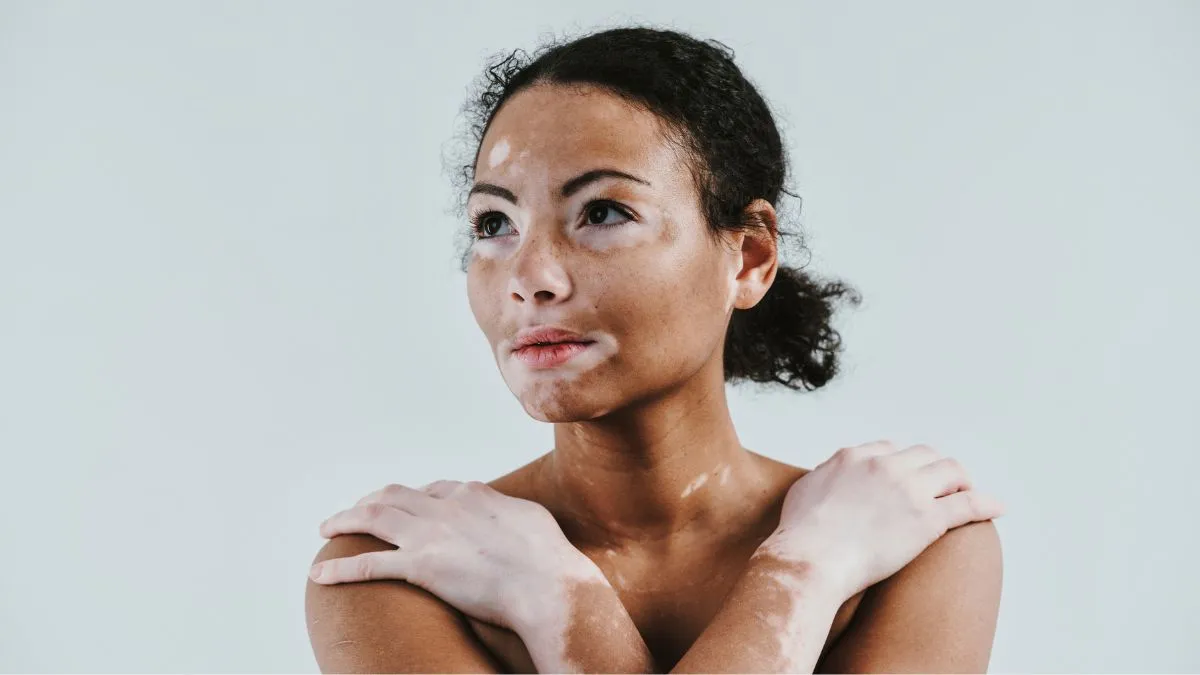- By Iram Hussain
- Wed, 25 Jun 2025 05:08 PM (IST)
- Source:JND
On the occasion of World Vitiligo Day, dermatologists across India are calling for greater awareness and timely intervention for vitiligo, a skin disorder that leads to white patches on the skin due to the loss of pigmentation. While not contagious or life-threatening, vitiligo can have a significant psychological impact, often leading to anxiety, depression and social stigma.
In a conversation with Jagran English, Dr. Kanu Verma, Consultant, Dermatologist & Cosmetologist at Aakash Healthcare explained about vitiligo, its treatment options and lifestyle and dietary tips.
What is Vitiligo?
Vitiligo is an autoimmune condition in which the body’s immune system mistakenly attacks melanocytes, the cells responsible for producing melanin, the pigment that gives skin its colour. This leads to depigmented white patches appearing on various parts of the body.
Dr. Kanu Verma explains, “Vitiligo can affect people of any age, gender, or skin type. The most common early sign is a patch of skin that suddenly becomes lighter in colour often on the hands, face, lips or around the eyes.” He adds that hereditary factors, thyroid disorders and oxidative stress may contribute to its onset.
ALSO READ: Vijay Varma Opens Up On Suffering From Vitiligo; Admits Covering It Up For Movies
Is Vitiligo Curable?
There is no absolute cure for vitiligo but advancements in dermatology have made it increasingly manageable. The doctor said, “Modern treatments can effectively stabilize the condition and, in many cases, restore pigmentation. Early diagnosis plays a key role in successful management.”
Treatment Options
Topical Therapies- Corticosteroid creams and calcineurin inhibitors are often prescribed for localized patches in the early stages.
Phototherapy (NB-UVB)- Narrow-band UVB therapy is a standard treatment that helps stimulate melanocyte activity.
Excimer Laser- Focused light therapy is used for smaller, stubborn patches.
Surgical Options- In stable cases, skin grafting or melanocyte transplants may be considered.
Depigmentation Therapy- For extensive vitiligo, depigmenting the remaining pigmented skin to achieve uniformity is an option.
Cosmetic Solutions- Camouflage makeup and medical tattooing can help improve appearance and self-esteem.
ALSO READ: 7 Expert-Recommended Mental Health Strategies For Coping With Vitiligo-Related Anxiety
Lifestyle And Dietary Tips
Lifestyle factors can play a supportive role in treatment:
-Avoid direct sunlight and always use sunscreen.
-Incorporate Vitamin B12, folic acid and antioxidant-rich foods like fruits, green vegetables and whole grains.
-Stress as emotional trauma can exacerbate vitiligo.
Mental Health Support Is Crucial
“Vitiligo is not just a skin issue, it’s a deeply emotional journey,” Dr. Verma says. “Many patients feel isolated or judged because of the visible nature of the condition. It is essential for society to become more accepting and for patients to seek mental health support if needed.”
